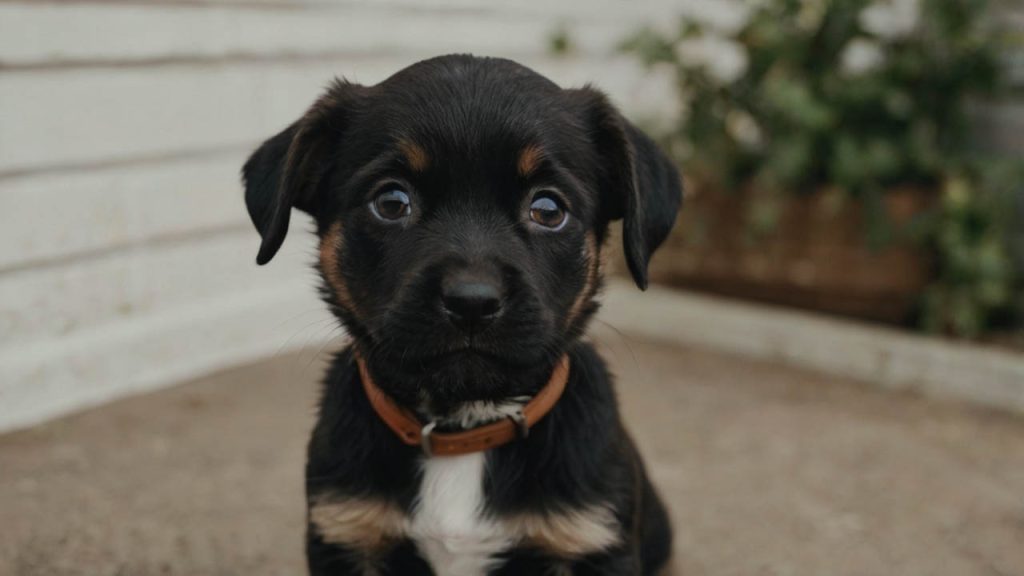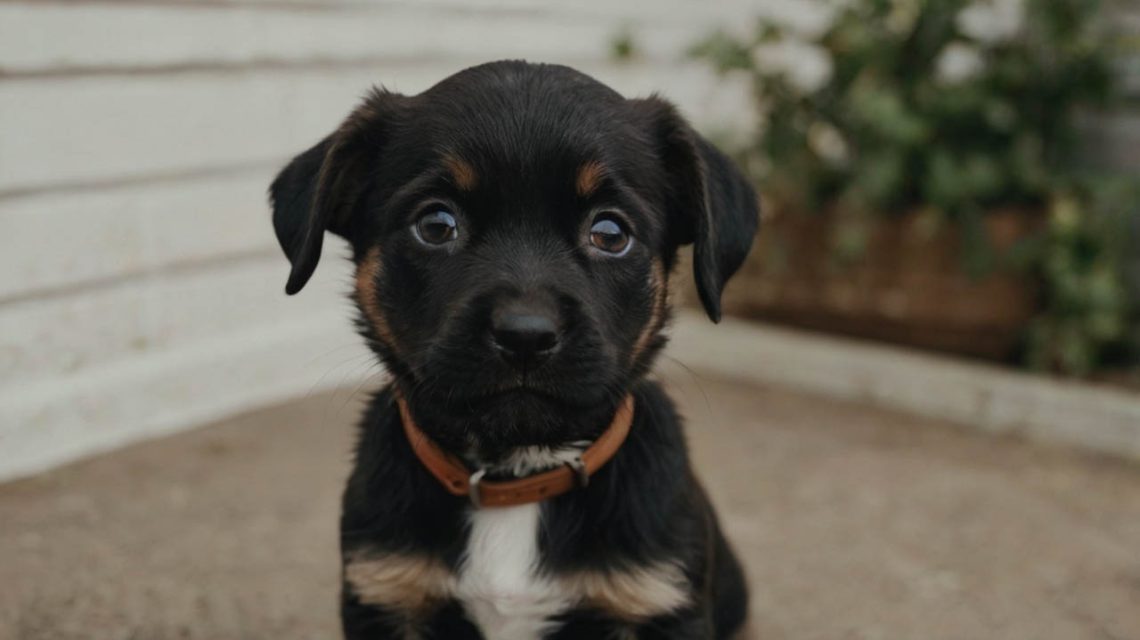Puppy Not Eating Much But Acting Normal: Your Complete Guide to a Puzzling Problem
Bringing a new puppy home is a whirlwind of joy, training, and a whole lot of watching them eat. Their voracious appetite seems endless as they fuel their rapid growth. That’s why it’s so alarming when you notice your puppy not eating much but acting normal. They’re still chasing their tail, pouncing on toys, and showering you with kisses, yet their food bowl remains untouched. This contradictory behavior can be incredibly confusing and stressful for any new puppy parent. Is it just a phase, or is something more serious going on?
This definitive guide will provide a complete storyline to help you understand this common yet concerning issue. We will explore the many potential causes, from simple developmental stages like teething to more subtle health problems. Consequently, you will learn how to accurately assess the situation, what safe strategies you can use to encourage eating, and, most importantly, the critical signs that mean you need to call your veterinarian immediately.
The Unique Concern of a ‘Puppy Not Eating Much But Acting Normal’
While an adult dog skipping a meal might not be an immediate crisis, the rules are fundamentally different for puppies. A puppy not eating much but acting normal is a situation that requires a much higher level of vigilance.

Why Puppies Are More Vulnerable
Puppies are not just miniature adult dogs; their bodies are in a constant state of high-speed development, making them more fragile.
- High Energy Needs: They are growing at an astonishing rate, which requires a consistent intake of calories and nutrients.
- Risk of Hypoglycemia: Puppies, particularly toy and small breeds, have very limited energy reserves. A lack of food can quickly lead to a dangerous drop in blood sugar (hypoglycemia), which can cause weakness, tremors, seizures, and can be life-threatening.
- Developing Immune System: Their immune systems are not yet fully mature, making them more susceptible to illnesses that an adult dog might easily fight off.
Therefore, while their normal behavior is reassuring, their lack of appetite must be addressed swiftly.
Common, Non-Urgent Reasons for a Puppy Not Eating Much But Acting Normal
Let’s begin with the most common and least worrisome explanations for your puppy’s hunger strike. Often, the cause is a predictable part of their development or environment.
Teething Pain: A Primary Culprit
If your puppy is between 3 and 6 months old, teething is a highly likely cause. The process of their adult teeth pushing through can make their gums sore, swollen, and tender.
- The Connection: While they may still want to play and chew on soft things, the pressure of crunching hard kibble can be painful. This explains why you have a puppy not eating much but acting normal.
- What to Do: Try moistening their kibble with a little warm water or low-sodium, onion-free bone broth to soften it. You can also offer chilled (not frozen) chew toys, like a wet washcloth that’s been in the refrigerator, to help numb their gums.
Behavioral Causes: Stress, Pickiness, and Overstimulation
Your puppy’s world is full of new experiences, which can sometimes be overwhelming.
- Stress of a New Home: It’s very common for a new puppy to have a decreased appetite for the first few days as they adjust to a completely new environment, new people, and a new routine.
- Overstimulation: A busy, chaotic household can be too distracting for a puppy to focus on eating. They may be more interested in playing or observing than sitting down for a meal.
- Developing Pickiness: If you’ve been giving your puppy lots of tasty treats or table scraps, they may be holding out for something more exciting than their regular food.
Recent Vaccinations or Medications
It is a very common and normal side effect for a puppy to feel a bit “off” and have a reduced appetite for 24-48 hours after receiving vaccinations. Some medications can also cause temporary, mild stomach upset.

When a ‘Puppy Not Eating Much But Acting Normal’ Signals a Medical Issue
While the reasons above are common, you must also be aware of potential health problems where a reduced appetite is the very first sign.
Mild Stomach Upset or Dietary Indiscretion
Puppies are notorious for putting everything in their mouths. They may have eaten something small from the yard or floor that has caused a mild, temporary stomach ache.
- Subtle Signs: Even if they aren’t vomiting, you might notice other subtle clues like increased lip-licking, a little drooling, or a slightly gurgly tummy. This could be the prelude to more obvious symptoms.
Intestinal Parasites (Worms)
Intestinal worms like roundworms and hookworms are incredibly common in puppies. A heavy worm burden can cause a decreased appetite and a pot-bellied appearance, often before other signs like diarrhea appear. This is why regular deworming schedules from your veterinarian are so critical.
Congenital Issues or Early-Stage Illness
In rarer cases, a consistent lack of appetite can be an early indicator of a more significant underlying health problem. While the puppy feels well enough to play, the disease process may have already begun to affect their desire to eat. This is why you should never ignore a puppy not eating much but acting normal if it persists.
Your Action Plan: What to Do When Your Puppy Isn’t Eating
Here is a step-by-step approach to safely and effectively manage the situation.
Step 1: The Rule of Two Meals
Unlike adult dogs, you should not wait 24 hours. A healthy, growing puppy should not miss more than two consecutive scheduled meals. If they skip breakfast and then show no interest in lunch, it’s time to take action.
Step 2: How to Safely Encourage Your Puppy to Eat
If you suspect a non-medical cause, you can try these safe methods to entice them.
- Soften Their Kibble: As mentioned for teething, adding warm water or broth is the best first step. It makes the food easier to eat and enhances its aroma.
- Add a Tasty Topper: Mix a very small amount (a teaspoon) of plain canned puppy food into their kibble. The novelty and strong scent can be very effective.
- Create a Calm Eating Environment: Take your puppy to a quiet room, away from distractions, for their mealtime. Stay with them calmly for 15-20 minutes. If they don’t eat, pick up the food and try again at their next scheduled mealtime.
- Avoid Creating a Picky Eater: Do not immediately offer them human food or an endless variety of treats. This can quickly teach them that refusing their food leads to a better reward.
Step 3: When You Must Call Your Veterinarian
This is the most crucial part of the plan. A puppy not eating much but acting normal requires a lower threshold for seeking professional advice. Call your vet immediately if:
- Your puppy has skipped two meals.
- They are a toy or very small breed (due to the high risk of hypoglycemia).
- They are also refusing to drink water.
- Any other symptoms appear, no matter how minor (e.g., a single episode of diarrhea, slight lethargy).
- Their gums appear pale.
Conclusion: Prioritize Safety for Your Growing Puppy
The puzzle of a puppy not eating much but acting normal is a common source of anxiety for new owners. While the cause is often a temporary and benign issue like teething or adjusting to a new home, the potential for rapid health decline in a young dog means you must treat the situation with caution.
Your storyline for action should be clear: observe closely, try simple and safe enticements, but never hesitate to call your veterinarian. A quick phone call can provide peace of mind or, in some cases, be the crucial first step in catching a problem early. Your vigilance and proactive care are the best gifts you can give your new best friend.
Have you ever had a puppy go through a phase of not eating? What was the cause, and what solution did your vet recommend? Share your experience in the comments below!


